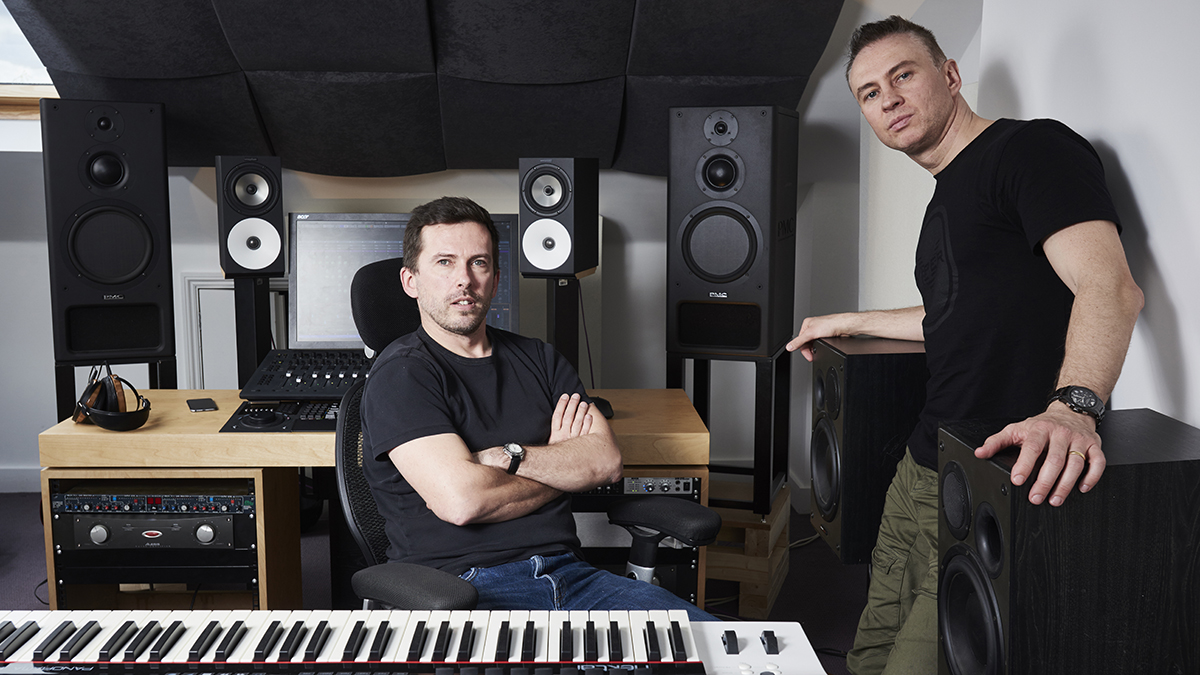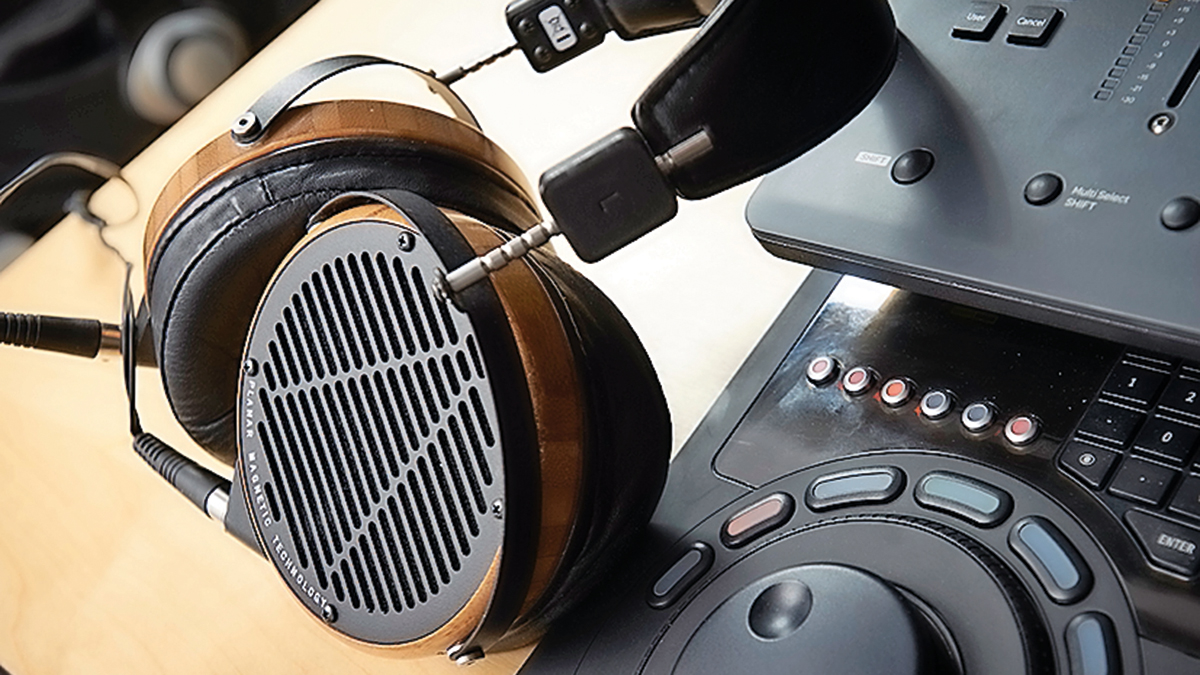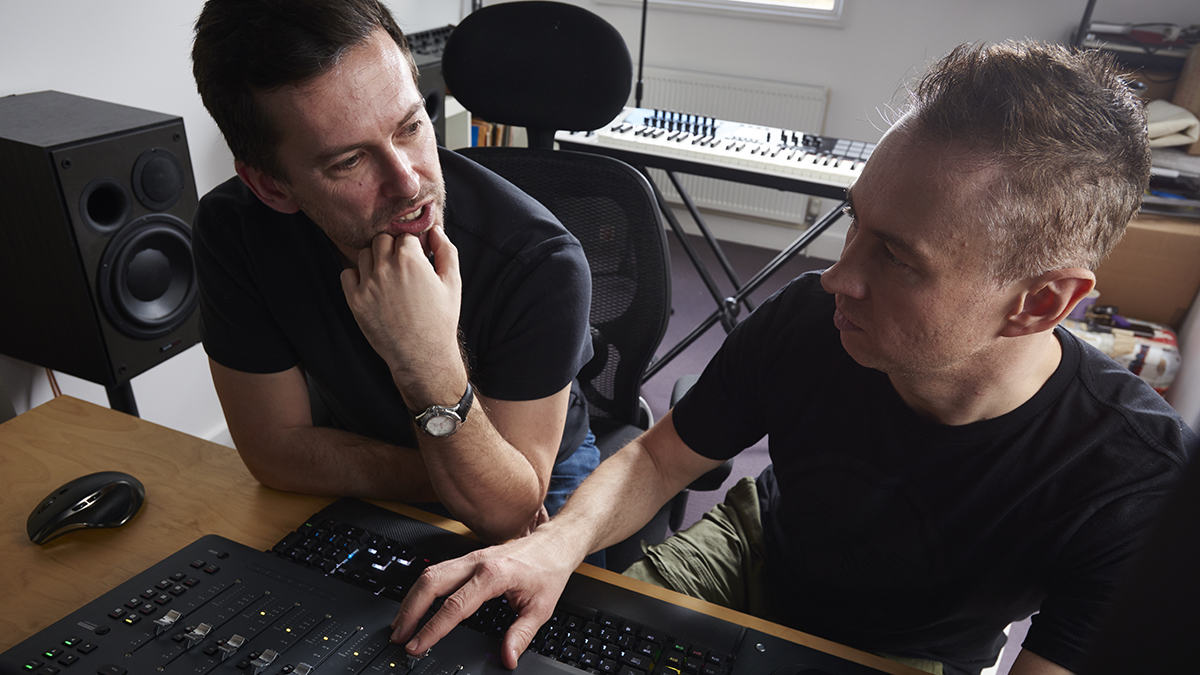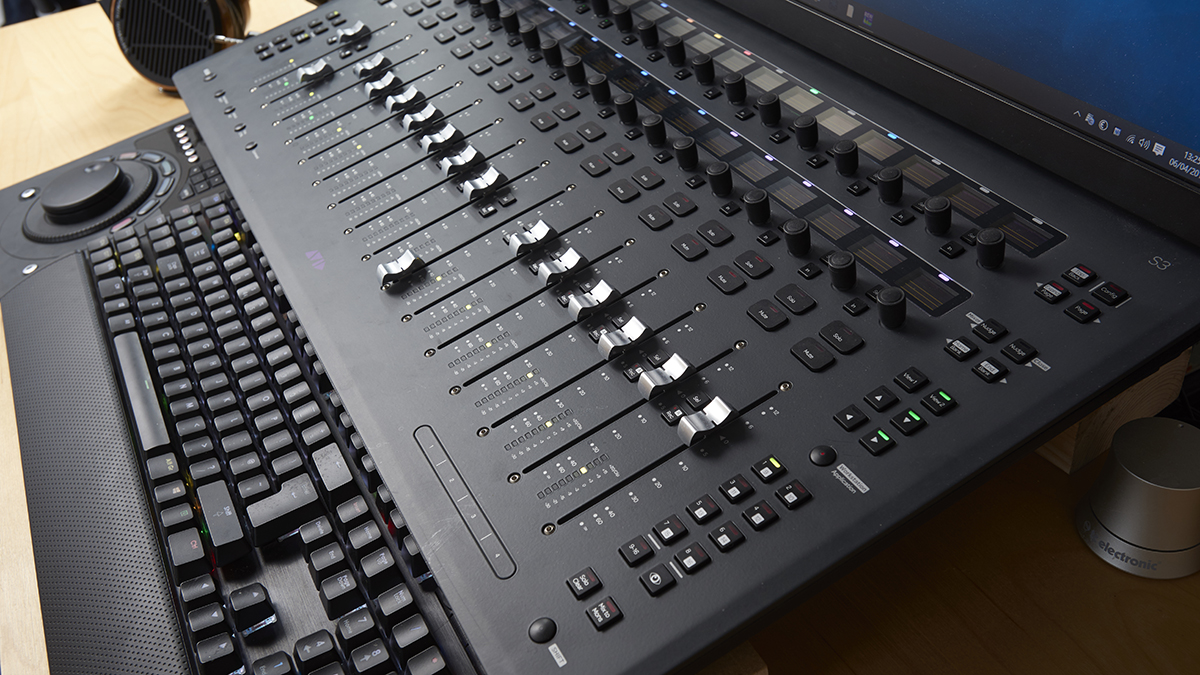Matrix & Futurebound on the early days and honing their signature sound
Jamie Quinn and Brendan Collins on the success of forming a partnership and becoming forerunners of the DnB scene

As solo artists, drum 'n' bass duo Jamie Quinn and Brendan Collins already had their own records labels, with Quinn (Matrix) starting Metro Recordings in the late '90s as a vehicle for his own releases and others, and Collins (Futurebound) forming the Liverpool-based Viper Recordings with Jaquan in 2003.
The pair decided to collaborate after performing respective DJ sets at a nightclub in Belgium, releasing the single Strength 2 Strength (2005) the same year. A flagship for the burgeoning genre, their debut album Universal Truth touched a nerve with drum 'n' bass fans, received critical acclaim from their peers and massive support from numerous renowned Radio 1 DJs, including Annie Mac, Zane Lowe and Pete Tong.
Merging labels, the hits soon began to pile up as the pair achieved crossover success into the mainstream singles chart throughout the next decade with All I Know, Magnetic Eyes and the Top 10 banger Control. Now gearing up for a raft of new releases, Matrix & Futurebound have signed a deal with Parlophone sub-label FFRR and recently released Happy Alone - a soul-tinged/drum 'n' bass effort that proves the duo still have their fingers firmly on the pulse.
What got you hooked on music?
Brendan Collins: "For me, it was leaving school and falling straight into the rave scene, going to early jungle parties and stuff like that. I was always a fan of electro growing up and breakdance music. I loved House as well, but once Fabio and Grooverider started pushing that breakbeat sound, that was the route for me."
Jamie Quinn: "I remember one of my brother's friends bringing round some vinyl from Warp Records. I think it was Nightmares on Wax. That was the first rave-type record I'd heard and one of my first entry points into the whole world of underground music that you didn't hear on the radio. It sparked my interest in going to record shops and becoming a vinyl junkie. I used to go to a club called the Lazerdrome in Peckham, which was one of my regular haunts. They had an airport security-style metal detector at the door - always a worrying sign when you're going for a night out."
BC: "I've been to some shady clubs in Liverpool but Lazerdrome was something else. I used to religiously go down to The Eclipse in Coventry. Liverpool has always been Hhouse-dominated and still is to this day, so we went there for drum 'n' bass and used to travel down to the deepest, darkest fields to listen to rave music."
Get the MusicRadar Newsletter
Want all the hottest music and gear news, reviews, deals, features and more, direct to your inbox? Sign up here.
When did listening to the music translate into wanting to make it?
JQ: "Production-wise, my first dabble was when a kid at my school gave me a disk with some computer games on for my Commodore Amiga. It had a football game and a little basic music program on it, like a tracker program, which had ridiculouslyterrible sound quality. You had to type in a load of numbers to write out your beat patterns, but it was my first experience of trying to make music. I started experimenting with that, sampling noises and playing them at different pitches - at the time it was quite mind-blowing. Then I remember clubbing together with two guys at school to buy a second-hand Akai sampler for about £300."
I was like, 'No dad, I'm going to make it in this music game'. Up until five years ago, he was still saying the same thing, but in my mind this was what I wanted to do.
BC: "Going to those early parties was like a new world to me. I'd just left school and heard all these stories in the newspaper about the evils of ecstasy. I was really intrigued by it and started buying the records people were playing at these parties. To go and see a DJ controlling that amount of people, and the way he was mixing the records together made me want to be a DJ. I took to it like a duck to water, and the natural thing from there was to experiment and discover how to make the music. All of my friends were producing on an old Akai S950 and I was excited to learn more about the production side."
Did you have jobs?
BC: "We both went to university and did all our studies. Jamie did a politics degree, although I couldn't see him as a politician [laughs], and I was forced into building studies by my dad because he was a surveyor. He said you've got to get an education, and I was like, 'No dad, I'm going to make it in this music game'. Up until five years ago, he was still saying the same thing, but in my mind this was what I wanted to do."
How did you meet and did you have a clear idea of the style of music you wanted to make?
BC: "We met each other in Music House, which was a cutting place for dubplates just off the Holloway Road. It was the place to go and a massive factor in jungle turning into drum 'n' bass to become what it is now. If you went there for several days, you'd meet every single person involved in the drum 'n' bass scene. We were cutting our early records there and you'd have Roni Size, Goldie and Bryan G going in - so we'd see all our heroes. That was the first time I shook hands with Jamie."
JQ: "At some point, we both ended up playing at the same gig in Belgium. We went to an after-party, beers were drunk and we talked about doing some music together. We both had a couple of tracks on the go and felt like we were on a similar page. We liked the idea of things being quite melodic but with the toughness of the harder-edged stuff out there."
BC: "It felt like there was a big gap in the scene, and it was very segregated. Both Jamie and I love all types of music, and all types of drum 'n' bass, but we wanted to put our signature on it by bridging our two styles together so it would work on the dancefloor but also have big melodies. We hit it off straightaway; within the first couple of releases everybody was jumping all over our music, from our peers in the drum 'n' bass scene to Annie Mac and Pete Tong. It was like, wow, something's happening here, so we just kept it going and thought let's do an album together, which became Universal Truth, and that went down really well."
How come you've not released another album?
JQ: "We've been more focused on doing singles and when we make a record we just want to put it out. The way people get their music is slightly different now. In the past, you'd sell a vinyl album, but with digital music it's a lot more about people picking up single tracks."
BC: "I think the moment's got to be right as well, there's got to be a good feeling within the camp. We did Universal Truth within the space of a year and were not even thinking about doing an album, so for us, it's kind of got to happen like that again. We do aim to do another album, but we just fell into the whole Top 40 world where our records were crossing over."
Your style has changed slightly... Universal Truth had guitars and a slight rock element, but your latest single Happy Alone is more dancefloor?
JQ: "We go wherever the vibe takes us. We did have quite a guitar vibe going on when we did Universal Truth, and I actually bought a guitar recently. But the next thing we'll release will be on our own Metro/Viper label, which will be a more club- focused record, not a vocal record like most of the stuff we've done recently."
BC: "Going back to what you were saying about our music shifting a little bit, that can depend on some of the vocals that come in as well. The Happy Alone vocal with V Bozeman was very soulful and uplifting, almost Motown, so we just tried to create an instrumental around that vibe."

Is DJing now a priority over making records?
JQ: "I wouldn't say it's a priority. When you're making club records, it's very valuable to be out there seeing how people respond to different things, and it's difficult to make club records if you're not in that environment all the time."
BC: "In the old days, you'd need more than a few tunes under your belt to get going, but these days one or two big tunes and you can be out there and high up on the bill. It's very rare nowadays that someone is a successful DJ and not a producer. If you take your foot off the gas and stop producing you can very easily fall behind. We still have the fire to want to make new music and go round the world DJing."
What's your live set-up these days - is it different to your DJ sets?
BC: "We've done Radio 1's Live Lounge, but we're strictly DJs when we go out performing. The Live Lounge was our debut live appearance, but we loved it. We had backing singers, a drummer, guitarist and keys player and we weren't just twiddling knobs - it took about three solid days of rehearsing. For our DJ shows, we use three CDJ-2000 mixers and either a Pioneer mixer or an Allen & Heath XONE:92, which we like a lot."
JQ: "In terms of artists we like, we're big fans of Sub Focus, and in the world of drum 'n' bass, Wilkinson's great, Noisia, The Prototypes and Dimension are doing some great stuff."
BC: "We were one of the last drum 'n' bass acts to be using vinyl. We were playing CDs at the same time, but Jamie gave up and said he's not doing it anymore. There is something about the buzz of using vinyl that I like. I'm going back to using a little bit of hardware in the studio because I'm sick of looking at this box, and it's the same with DJing - I want to move about. I've had some of the best nights of my career DJing with vinyl - not just because of the vinyl, but the whole process of mixing with it."
Jamie, we understand that you've recently moved into a new studio… Can you tell us what precipitated that move?
JQ: "Well, the studio's in my house so it was obviously based around that. Finding a house that had a nice spot to turn into a studio was important. I used to go to a studio for about ten years, because I had a smaller house and a much bigger volume of gear, but I got to a point where I started to move over to making music on a computer and found myself never going to my studio but sitting and making music on the dining room table."
BC: "Same with me... I used to rent a room in Parr Street Studios in Liverpool. A lot of acts passed through there to mix albums and stuff, so it was a good environment to work in. Like Jamie said, in those days you needed lots of different outboard kit, but as times changed I also found myself working from home."
So how do you combine to make music working from your own studio spaces?
JQ: "I guess the process is pretty 50/50. We often have these very embryonic ideas that might be thrown together in half an hour, like drum loops or a couple of little riffs and send them back and forth. Some might be forgotten about and sit on the hard drive for a year, then you discover them one day and they turn into tracks. There is no set way - some of our records will start with drums, a chord pad or an acapella of a vocal and we'll build a track around that."
BC: "I always find the best tracks are when you've started an idea and think you've had a wasted day, forgotten about it and in six months' time what you did turns into something hot."
Are you fast workers?
JQ: "Usually, the main elements of a track will be done very quickly. If you trace it to the final mix, all those early ideas are there, but it can take a long time going from that to the final product. I'd say 90% of the finished product will be done in a couple of days, but the last 10% can take months and there could easily be 100 versions bounced out of Cubase."
BC: "You also have the process of getting a vocalist who sounds right for the track, which can change how we mix the track. In our old studios, we'd have an Emu Systems E64 sampler and a Mackie 8-buss 24-inch desk - it was the industry standard and sounded amazing, but life's got so much easier now."
JQ: "That's one of the differences. If you're working on analogue hardware that doesn't have recall, you make the track, come in the next day and if it sounds about right you tweak it a bit and then it's off the desk and you start something new; you can't enter the mixdown again. But working within the software domain, you have the luxury of listening to something you've been working on and a couple of weeks later making miniscule adjustments. It's a double-edged sword, because you can keep coming back to it but also get sucked into this world of endless tweaking. When you've reached the point of doing 100 different versions but really can't hear the difference on version 97, that's when it's finished."

I presume you both use the same DAW?
BC: "We've always used Cubase, right from entry level. I went to Logic and for some reason I tried out ProTools and Reason, but when I started working with Jamie he convinced me to work within Cubase. It was probably the best advice he's ever given me, although to be honest it all boils down to your ears. If you've got a good ear for music, no matter what DAW you're using it will always come out right."
JQ: "It really doesn't matter which one you use; it's more important how well you know it. You're always hearing how certain other DAWs have this or that new feature, but I've got years and years of doing stuff in Cubase. Because I've learnt it inside out, I can do things ten times as fast as in anything else."
What are some of your favourite synth plug-ins at the moment?
JQ: "The latest exciting one in terms of synths is probably Serum, and Sylenth is one that we've absolutely hammered. It's good for melodic elements in our tracks, and when you want to reach for that sort of synth it's very quick and easy to program and you don't have to think too much about how to route something because the interface is very good. We've used Reveal Sound's Spire software a lot recently as well. Those three are the most commonly used, and Kontakt for twisting the sounds that we've made."
Are you careful not to stray too far from your signature sound?
JQ: "Funnily enough, sometimes when you've used some of your tried and tested techniques several times before on a track, you'll promise not to do those things again and go in a different direction, but when you see people commenting about your tracks online they'll say, 'This is not Matrix & Futurebound! What are they doing?'
"Every producer definitely has a signature sound; subconsciously there's certain ways that you mix things down or treat your drums that give it your sound. We just both try to make something we enjoy ourselves and not think about who is going to like it or where it's going to fit in. Some of our most successful records have been the ones where we've questioned how people are going to think of it.
"When we did American Beauty, which was one of our really early tracks that put us on the map, it has a minute-long ambient piano breakdown at the beginning and I remember thinking, no one's really going to go for this in a big rave, but they did. So you always know to some degree whether something you're working on is really good or not, but you're never sure to what degree people will like it until you get it out there."

Despite moving into the box, you still have a couple of pieces of synth hardware littered around…
JQ: "The Sequential Circuits Pro One, which I've had for years and years, is a great analogue synth. We use that to make bass sounds and then resample them; it's got really cool modulation possibilities too. That's the only actual out-of-the-box synth that I use to be honest.
"The other two are controller keyboards, the Korg MicroKontrol and a Nektar Panorama. I bought that because, as well as being a keyboard, it has DAW-control stuff on it, but now I have the Avid S3, which is in another league in terms of how you can control your software. It's a controller for Cubase, so it doesn't pass any audio through it, but you have hands-on control for your EQs or send levels, or to edit your plug-ins and do automation. I've used loads of different control surfaces over the years, like the Mackie MCU, some Steinberg ones and the Avid Artist controller- but Avid are definitely the best ones."
BC: "I've gone with the same set-up as Jamie, but lately I've wanted to try some different techniques by going out of the box through a bit of hardware and back in, whether it's resampling a break or a bassline or pulling the whole track out of it and going through an EQ compressor. I did a little research and found the Antelope Orion 32 is a really good audio interface for going out and back into the box, and I've bought this Zahl EQ thing that should be arriving any day now. When you distort inside a computer it can sound pretty harsh on the ears; there's only so far you can go with it before it starts sounding nasty."
I always find the best tracks are when you've started an idea and think you've had a wasted day, forgotten about it and in six months' time what you did turns into something hot.
Will you always join up for the mixing stage?
BC: "Yeah, while I'm down here we'll finish two new tracks for release on Metro/Viper. The competition is very stiff these days; it's always moving on and some of the people that are producing at the moment make you wonder if you can stay ahead of the pack or get ahead of them - that's why we go round in circles. A bit later these walls will have blood on them."
JQ: "Mixing is very satisfying when you get to the end of it. The whole process of making a record starts with the quick bit - getting that vibe you're excited about, which is a lot of fun, but there's definitely a bit in-between that involves a lot of tearing out of hair and stress, so I wouldn't call the journey fun, but I'd call the beginning and the end fun."
Do you have many disagreements?
BC: "Yeah, of course, but disagreements can make agreements happen. Wouldn't it be a wonderful world if no one argued? You've always got to try new ideas. Jamie might suggest something and I'll go, 'oh, I don't' know about that', but you've got to try them because you never know what can come out of it."
JQ: "We get down to debating things like the level of the hi-hats; that's another sign that the track should be finished. But we'll broadly agree on the main vibe of a track. Making electronic music generally involves sitting in a studio together for potentially massive amounts of time, so if you don't get on well you might make good music for a year, but you won't last very long."
Where do you usually get the records mastered?
JQ: "A lot of the time, we'll send them to get mastered but don't always actually use the master and decide whether we prefer our own master or not. Whatever you send some mastering engineers, you can guarantee they will make it even louder and add more topby default."
BC: "Most of the time it's the club records that we master ourselves. Stuart Hawkes from Metropolis is someone that we always go to and he's fantastic because if he doesn't think it's broke he won't try and fix it. But I get where they're coming from; they're in a paid position and trying to make a name for themselves, so they can't say, 'I can't do anything with this'."
You can hear the latest from Matrix & Futurebound on the duo's Soundcloud page.


Future Music is the number one magazine for today's producers. Packed with technique and technology we'll help you make great new music. All-access artist interviews, in-depth gear reviews, essential production tutorials and much more. Every marvellous monthly edition features reliable reviews of the latest and greatest hardware and software technology and techniques, unparalleled advice, in-depth interviews, sensational free samples and so much more to improve the experience and outcome of your music-making.
“I’m looking forward to breaking it in on stage”: Mustard will be headlining at Coachella tonight with a very exclusive Native Instruments Maschine MK3, and there’s custom yellow Kontrol S49 MIDI keyboard, too
“Turns out they weigh more than I thought... #tornthisway”: Mark Ronson injures himself trying to move a stage monitor










